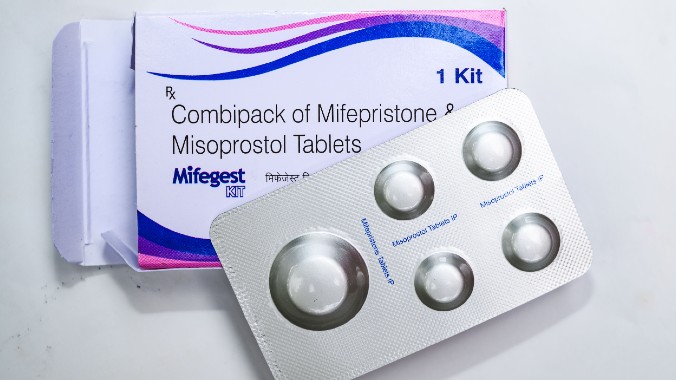Louisiana GOP Wants to Add Abortion Pills to the State’s Controlled Substances List
With “no medical or scientific justification whatsoever,” the new bill draws on the same framework of the War on Drugs to “expand the scope of pregnancy-related criminalization,” one legal expert told Jezebel.
Photo: Shutterstock AbortionPolitics
This week, Louisiana Republicans added amendments to a bill that would add medication abortion pills—specifically mifepristone and misoprostol—to the state’s controlled substances list. Under the state’s current abortion ban, only abortion providers are explicitly threatened with criminal charges and prison time for providing abortion care. But under this bill, it would be a crime to possess abortion pills without a valid prescription, to hold the pills for someone else, or to have the pills if you aren’t pregnant and imminently planning to take them, which is also known as “advance provision.” Those in violation could face up to five years in prison and a $5,000 fine.
“This bill just builds on the blueprint for broader abortion and pregnancy-related criminalization that we’ve been seeing for some time,” Dana Sussman, senior vice president of Pregnancy Justice, told Jezebel. And while the bill claims it won’t criminalize people who are pregnant and intend to take the pills, Sussman questions how law enforcement could possibly discern whether someone is pregnant and holding the pills for their own consumption “unless they’re already under investigation by law enforcement.” The requirement that someone prove they’re pregnant and plan on imminently using the pills—and enforcement of the bill, in general—would be “incredibly invasive and intrusive,” Sussman said.
The amendments are part of an effort to make “coerced criminal abortion by means of fraud” a crime. State Sen. Thomas Pressly (R) filed the bill, SB 276, on behalf of his sister, whose husband added abortion pills to her drink without her consent. Pressly claimed at a committee hearing on Tuesday that he’s “aware of increasing incidents of men using threats of violence or duress to cause women to take abortion pills against their will,” pushing a common anti-abortion narrative that ignores how taking away the option of accessing abortion can trap women in abusive situations.
-

-

-

-

-

-

-

-

-

-

-

-

-

-

-

-

-

-

-

-

-

-

-

-

-

-

-

-

-

-

-

-

-

-

-

-

-

-

-

-








































